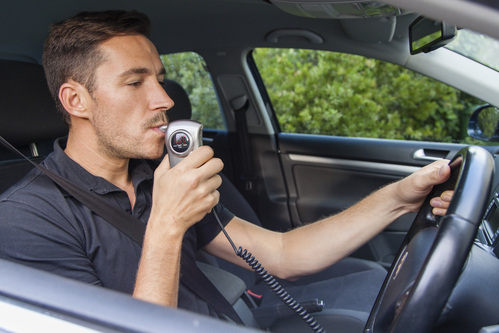Introduction
Driving drunk (DUI) is a major crime that can have severe repercussions. If you are pulled over by police and presumed of driving while damaged, you might be asked to submit to a breathalyzer examination or other chemical examinations to identify your blood alcohol focus (BAC). However, it is important to understand that you deserve to decline these examinations under particular situations. In this short article, we will discover the rejection protection in DUI cases and review when you can refuse.
The Repercussions of a DUI Conviction
Before delving right into the refusal defense, it is essential to recognize the prospective repercussions of a DUI conviction. A new drunk driving offense can result in substantial fines, certificate suspension, mandatory alcohol education programs, probation, and also prison time. Furthermore, a DUI conviction can have lasting results http://drinkinganddrivingdefencebfaj548.bearsfanteamshop.com/understanding-the-repercussions-of-a-very-first-time-dui-offence-in-toronto on your individual and professional life. It can impact your capacity to protect employment, obtain certain professional licenses, and also impact your vehicle insurance rates.

Know Your Civil liberties: The Right to Refuse Chemical Tests
When it pertains to chemical examinations for identifying BAC, numerous jurisdictions have suggested authorization laws in place. Indicated authorization means that by operating a car on public roads, you have actually already offered grant send to chemical testing if law enforcement has sensible suspicion that you are driving drunk. Nevertheless, this does not suggest that you can not refuse these examinations under any circumstances.
1. Recognizing Implied Approval Laws
Implied approval legislations differ from state to state, but they normally require drivers who are legally arrested for DUI to submit to chemical testing upon request by police police officers. Failure to follow suggested consent regulations can cause automated certificate suspension and other charges. However, it is important to note that implied approval just applies after a legal arrest has actually been made.
http://over80duinepp411.yousher.com/top-5-factors-to-employ-a-dui-lawyer-in-toronto
2. Exceptions to Implied Consent
While indicated consent legislations develop the basic policy that motorists need to send to chemical screening, there are exemptions to this requirement. These exceptions vary relying on the jurisdiction, but typical examples include:
- Medical Condition: If you have a medical problem that avoids you from supplying a breath example, such as a persistent lung disorder or asthma, you may be exempt from taking a breath analyzer test test. Injury: If you have actually been associated with a cars and truck crash and suffered an injury that prevents you from providing a blood example, you might be excluded from taking a blood test. Language Barrier: If you do not recognize the language in which the chemical tests are administered, it may be taken into consideration a valid factor for declining the tests.
3. The Right to Decline Pre-Arrest Field Sobriety Tests
Before being arrested for DUI, police officers may ask you to do field soberness examinations (FSTs) to determine if there is likely cause for an arrest. It is essential to note that FSTs are voluntary and you have the right to reject them without any legal repercussions. These tests normally consist of walking in a straight line, basing on one leg, and following an officer's finger with your eyes.
Frequently Asked Concerns (Frequently Asked Questions)
Can I decline a breath analyzer examination if it is my first offense?- Yes, you can decline a breath analyzer examination even if it is your first offense. Nonetheless, it is very important to consult with an experienced DUI attorney before making this decision as rejection can lead to other legal consequences.
- Refusing a chemical examination can result in automated permit suspension, no matter whether you are ultimately convicted of DUI. The length of the suspension differs depending upon state regulations and prior offenses.
- Yes, refusing a chemical test does not automatically discharge you from being billed with DUI. Law enforcement police officers can depend on other evidence, such as observations of problems or performance on field sobriety tests, to develop likely reason for an arrest and subsequent charges.
- In some jurisdictions, you might have the chance to alter your mind and submit to a chemical examination after originally declining. However, it is important to speak with an attorney as this choice can have legal implications.
- Refusing a chemical test might be deemed an admission of sense of guilt by some law enforcement police officers and district attorneys. Nevertheless, it is essential to remember that you have the right to protect your lawful passions and speak with an attorney before making any decisions.
- If you are charged with DUI after refusing a chemical examination, it is critical to seek lawful representation promptly. A seasoned DUI attorney can evaluate the details of your case, examine the legitimacy of the apprehension and refusal, and create an effective defense strategy.
Conclusion
Understanding the rejection protection in DUI cases is essential for safeguarding your legal rights when confronted with prospective costs. While indicated consent laws generally call for vehicle drivers to submit to chemical screening upon lawful arrest, there are exemptions that enable rejection under particular circumstances. It is necessary to seek advice from a seasoned DUI attorney who can give advice customized to your specific scenario and assistance browse the complicated legal process. Keep in mind, understanding is power when it comes to defending yourself versus DUI charges and ensuring a reasonable end result in court.